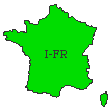Sir John Johns
Jr. Member
  
Posts: 864

|
 |
« on: August 23, 2017, 04:17:55 PM » |
|
Presidential elections during the Second Nigerian Republic (1979-1983)
A free and relatively fair (at least according to Nigerian standards) presidential election was held in 1979, the last step in a process to return to democracy after 13 years of military dictatorship. Only five political parties (each one running its own presidential candidate) were allowed. They were constitutionally required to be national organizations; in practice, they were not really different from the regional parties that dominated the political life under the First Republic.
The five presidential candidates were:
Obafemi Awolowo, a Yoruba and a former premier of Western Region (1954-1959), who ran under the banner of the social-democratic Unity Party of Nigeria (UPN), which was in all but name the successor of the Yoruba-dominated Action Group.
Nnamdi Azikiwe, ‘Zik’, an Igbo who served as premier of the Eastern Region (1954-1959) and became in 1960 the ceremonial head of state of Nigeria (serving first as governor-general and from 1963 until the 1966 coup as president). Zik ran as the candidate of the nominally center-left Nigerian People’s Party (NPP), the successor of the southeast-based National Council of Nigeria and the Cameroons.
Shehu Shagari, a Fulani from the northern state of Sokoto, who hold various ministerial portfolios under both the First Republic and the military dictatorship. Shagari ran as the candidate of the National Party of Nigeria (NPN), the successor organization of the Northern People’s Congress.
Waziri Ibrahim, a Kanuri from the northern state of Borno and a wealthy businessman, ran as the candidate of the Great Nigerian People’s Party (GNPP), basically a northerner splinter group from the NPP that was founded after the latter party nominated Zik over Ibrahim as its presidential candidate.
Aminu Kano, a native from the Kano State, who ran as the candidate of the leftist People’s Redemption Party (PRP), the successor party of the Northern Elements Progressive Union. The PRP was considered as the most radical of the five parties, as it advocated a mixed economy.
National results were:
Shehu Shagari (NPN) 33.6%
Obafemi Awolowo (UPN) 29.3%
Nnamdi Azikiwe (NPP) 16.8%
Aminu Kano (PRP) 10.3%
Waziri Ibrahim (GNPP) 10.1%
Note: apparently, Abuja voters voted in Niger, in Plateau, or in Kwara.
Like under the First Republic, the vote largely continued to split along ethnic lines, with the NPN emerging as the only true national party. Thus, Awolowo swept the Southwest, winning the Yoruba-populated states by huge margins: 92.6% in his native Ogun, 94.5% in Ondo, 85.8% in Oyo, and 82.3% in Lagos. He also won the Bendel State with 52.2%. Similarly, Azikiwe got, by far, his best results in the Igbo-populated states of Anambra (82.9%) and Imo (86.7%); for some reason, he also won the Plateau state with 50.2%. The results of Shagari are more interesting as he managed to build a multi-ethnic coalition between the northerner Hausa-Fulani (65.2% in Sokoto, 75.4% in Niger, 62.5% in Bauchi) and the southeastern minorities who feared a possible regional hegemony of the Igbos (72.7% in Rivers, 76.4% in Benue, 64.4% in Cross River). Kano only won his native state with 77.7% and did poorly in the rest of the country, with the noticeable exceptions of Kaduna (31.7%) and Bauchi (14.3%). Ibrahim won his native Borno state with 54.1% but, similarly to Kano, did very poorly in the southern part of the country, with the exception of Cross River where he won 15.1%.
In the aftermath, there was a huge constitutional dispute about whether Shagari met the legal requirements (“not less than one-quarter of the votes cast at the election in each of at least two-thirds of all the States”) to be declared president in the first round. In a controversial move, the Supreme Court ruled in favor of Shagari who became the first, and only, president of the Second Republic.
The 1983 presidentiall election was basically a re-run of the 1979 election with the same candidates minus Kano who died shortly before the election and was replaced by Hassan Yusuf, and with a sixth, irrelevant, candidate, Tunji Braithwaite, running for the left-wing southern-based Nigeria Advance Party (NAP). The election was however marred by violence and massive fraud (the number of voters unbelievably increased from 16.8 million in 1979 to 25.4 million) in favor of incumbent president Shagari, by now fairly unpopular due to massive corruption and economic downturn. Fraud seems the most plausible of the collapse of the two other northerner candidates.
National results were:
Shehu Shagari (NPN) 47.5%
Obafemi Awolowo (UPN) 31.1%
Nnamdi Azikiwe (NPP) 14.0%
Hassan Yusuf (PRP) 3.8%
Waziri Ibrahim (GNPP) 2.5%
Tunji Braithwaite (NAP) 1.1%
The proclamation of the results led to such an outbreak of violence that the army overthrew Shagari in December 1983 and took power. Civilian rule would only be restored in 1999.
|

